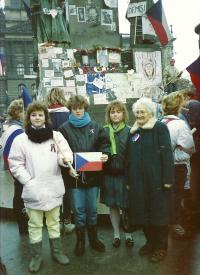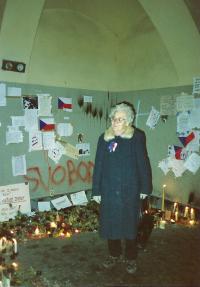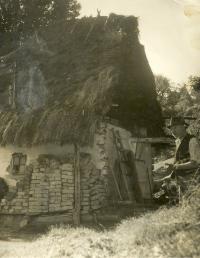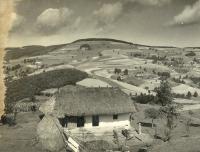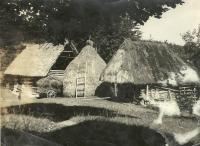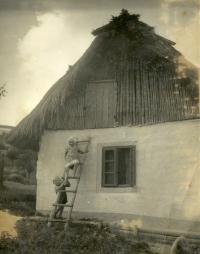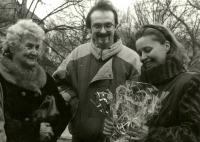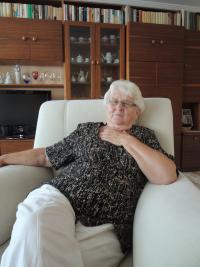No one had to ask me. I reckoned that, while I was still able, I would go and help.
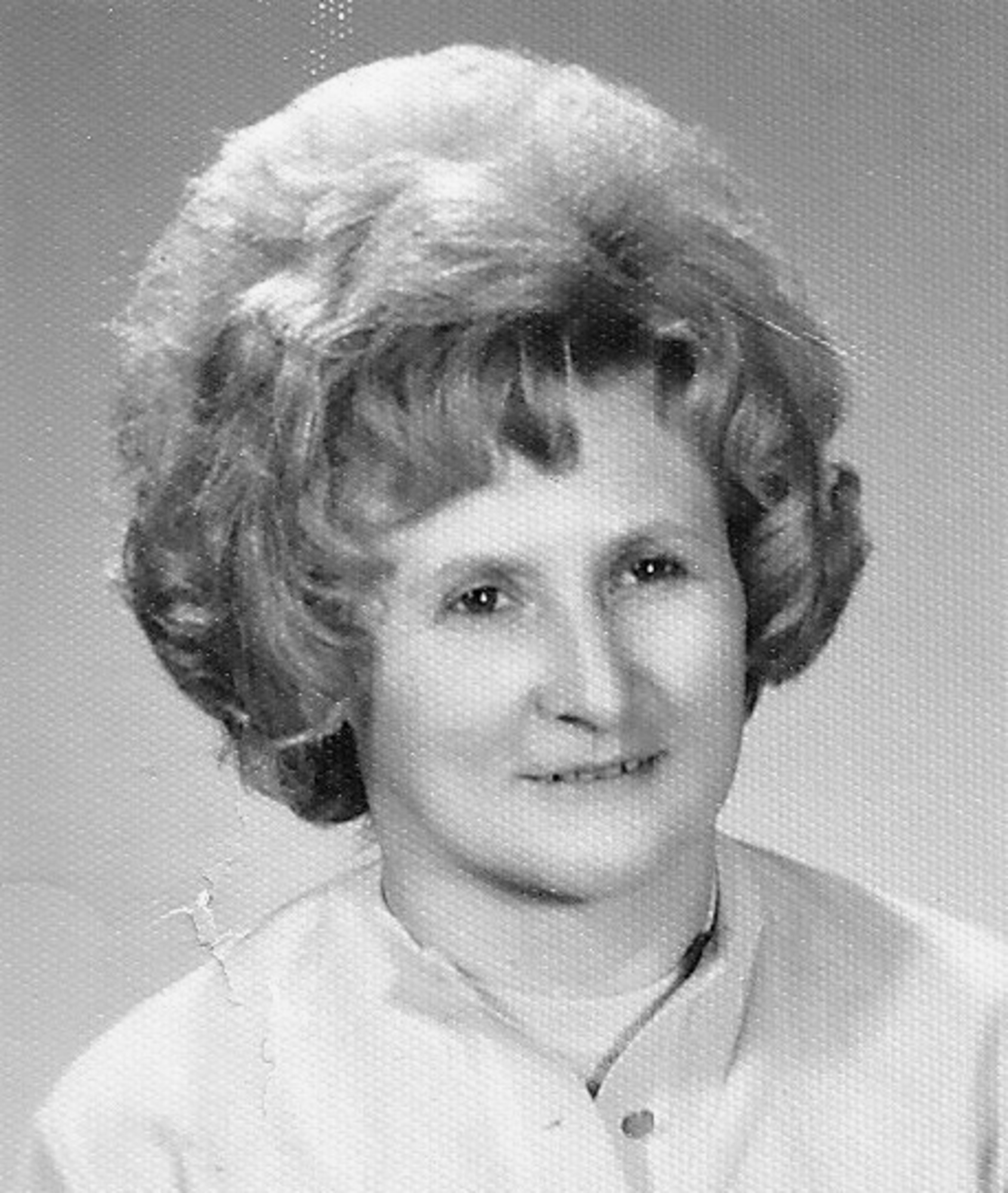
Download image
Olga Dolníčková, née Bohuslavová, was born on 17 March 1936 in Trenčín (Slovakia) into a family of Czech teachers. Both her parents taught in the village of Drietoma, near Trenčín. In spring 1939 authorities forcibly evicted them from the territory of the new Slovak State. They found a home in Vyškovec, on the Slovak-Moravian border, just a few kilometres away from their previous location. The family spent the entirety of the war there, with partisans hiding in the surrounding forests and with more than sixty people hiding in their cellar for a fortnight during the final moments of the war. After the war her parents decided to move to the border region, where they were allocated to a school in the village of Dolní Dunajovice in South Moravia. Her father became one of the first Czech representatives of the local authorities, he even headed the village for a short time, and he was the first headmaster of the school there; Olga was among the first Czech children in the village. The family stayed in the village, and Olga later got married in Dolní Dunajovice and began working as a shop assistant. Due to the lessons her parents taught her, she refused to support the regime, a sentiment that increased in intensity following the events of August 1968. She refused to participate in elections, and she was not afraid to make public her opinions on matters concerning both her village and her country, often in the form of slogans, leaflets, and as she herself puts it: “I carried out all sorts of prankish roguery.” When things started changing in November 1989, she immediately took an active part in the events, initially at the district level, later also within the village itself. She was one of the village representatives in the Civic Forum, she persuaded capable people to go into politics, she participated in a number of negotiations, and she was also a member of the district privatisation committee.
